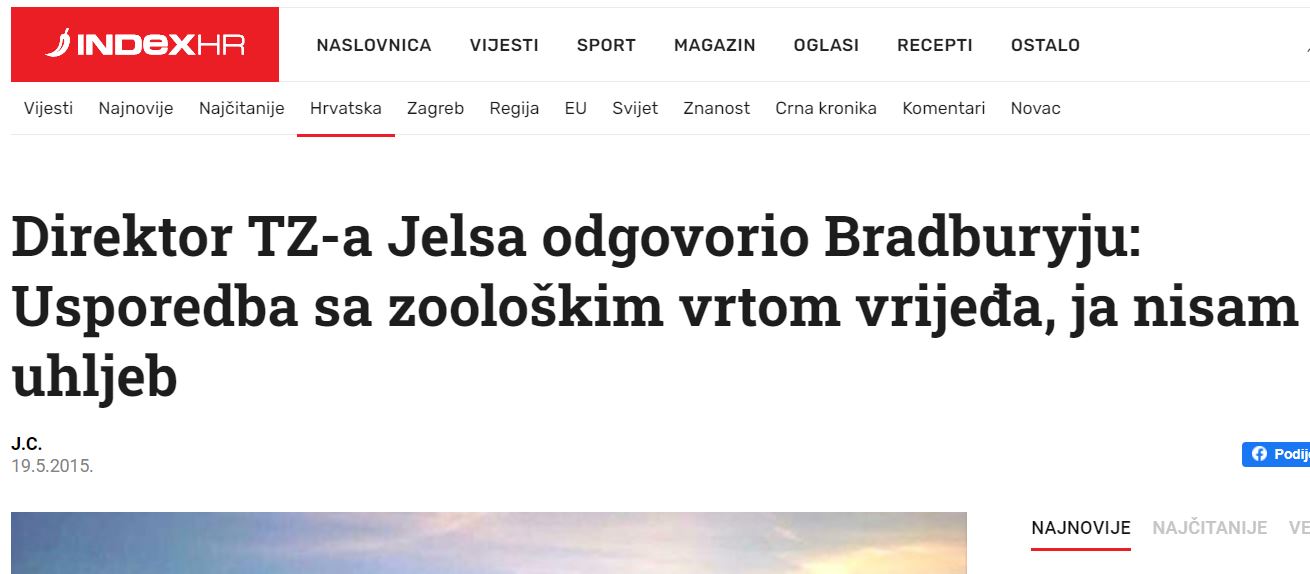Breakfast in Split 2022: Your Guide to Morning Bites
July 13, 2022 - Breakfast is the most important meal of the day, but that hasn't always been the case in Split. That is, until recently. A look at breakfast in Split 2022.
As someone that grew up in southern California on breakfast burritos, loaded scrambles, crispy hashbrowns, eggs benny, and a neverending display of pancakes from the local diner, breakfast has always been my favorite meal. But on my visits to Croatia over the past 20 years before moving here 7 years ago, breakfast was hardly a meal to remember.
In 1996, I remember mornings eating oversized pieces of crusty bread with butter and marmalade. In the early 2000s, we'd search for the saltiest burek to cure the hangover on Hvar or force the restaurant to serve french fries with the only ham & cheese omelet on the menu, if only to attempt at mimicking the breakfasts we were used to. But the selection, overall, was nothing to write home about.
The story today, however, is much different, and Split especially has blossomed as a breakfast and brunch spot in the last few years. As a result, this summer's better than ever.
Brasserie on 7
One of the city's first 'true' brunch spots is Riva favorite Brasserie on 7, bringing a taste of Australia to the Croatian coast with brioche French toast, eggs benedict, and homemade English muffins, among some of their morning options. You can find the full breakfast menu here.
Chops
Split's best steakhouse isn't only home to the finest cuts of Croatian beef, but you can find breakfast here from 8 am to 11 am, with avocado toast, croissant sandwiches, toasties, and American-style pancakes on the menu. You can also snag their yummy breakfast sandwiches next door at Paradiso!
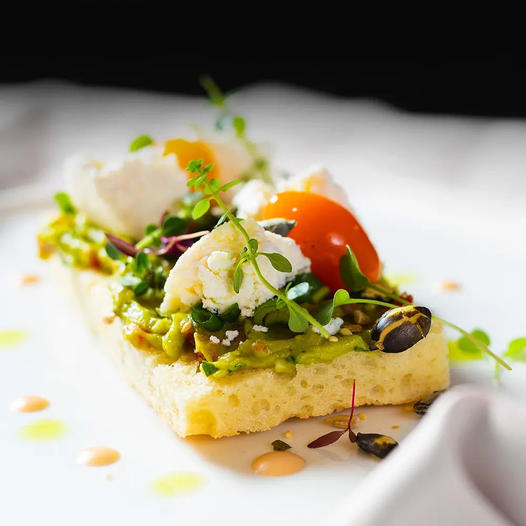
Zinfandel
A wine bar that is so much more than the wine, Zindanfel ensures it is open in the morning for you to enjoy Florentine-style eggs, Turkish eggs, or the gourmet breakfast baguette for those looking to fill up for the day. You can find the full menu here.
Fig
After its success in Hvar town, Fig opened in the heart of Diocletian's Palace back in 2019 to the delight of everyone eager to dig into their famous vegetarian breakfast burrito, California toast, or spicy steam-poached eggs. You can find the full menu here.
The Daltonist
From craft cocktail bar to your go-to pub for grub, The Daltonist has an impressive morning menu that ranges from truffle benedict to shakshuka, and the uber popular 'Full Daltonista,' or their take on an English Breakfast with pork sausage, ham, fried egg, roasted tomatoes, mushrooms, greens, black beans, and homemade bread! You can see the full menu here.
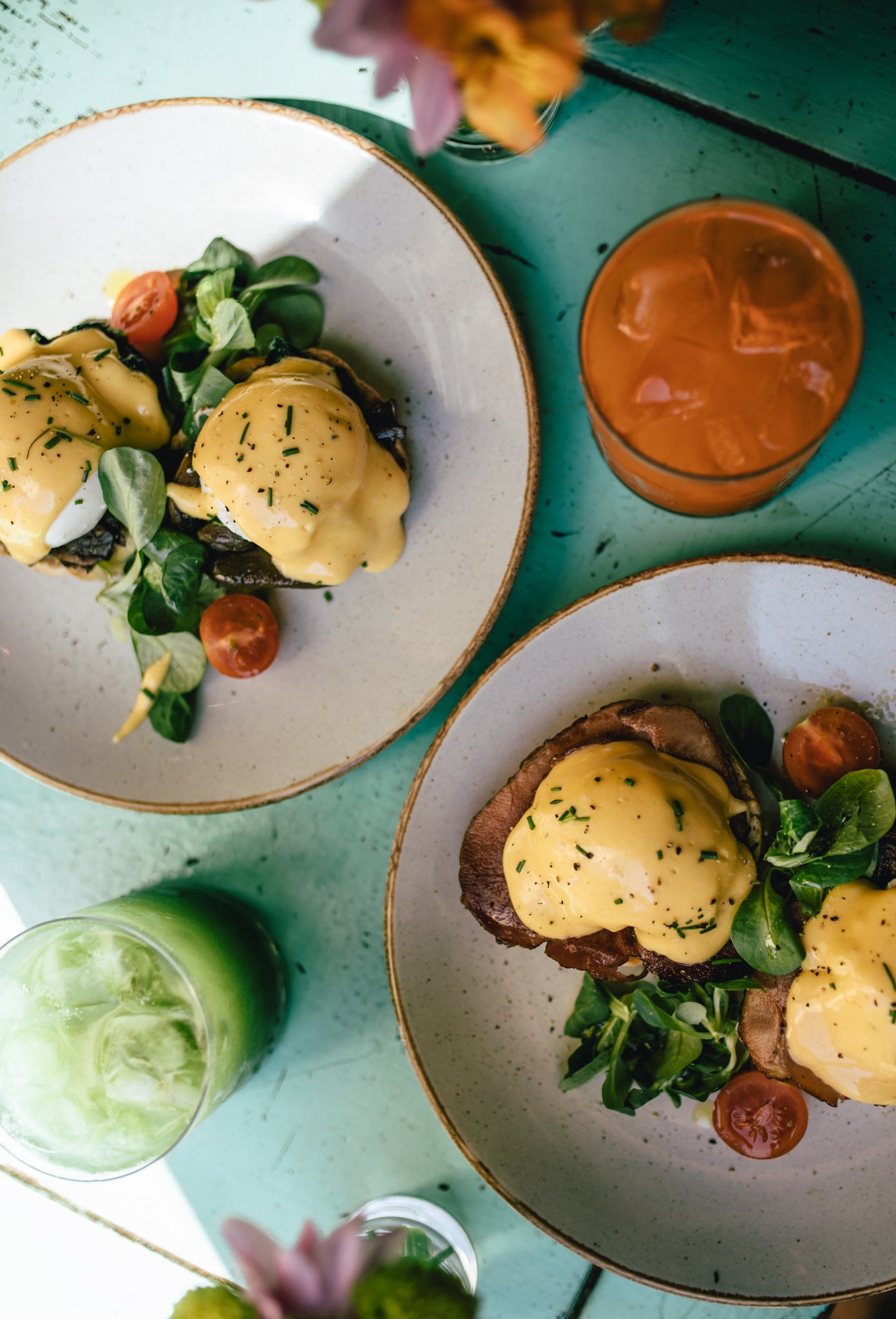
Ciri Biri Bela
This cafe and restaurant is located in a romantic courtyard just behind the theater, serving a selection of farmer's fresh omelets, benedicts ranging from classic to royal, homemade waffles, rustic sourdough toast topped with avocado cream and wild salmon - and more! You can find the menu here.
Pandora Greenbox
The plant-based Pandora is one of the healthier options on the list, offering iced coffees with plant-based milk, vegan protein smoothies, and smoothie bowls with raw cacao, banana, and crunchy peanut butter! You can find them on Facebook.
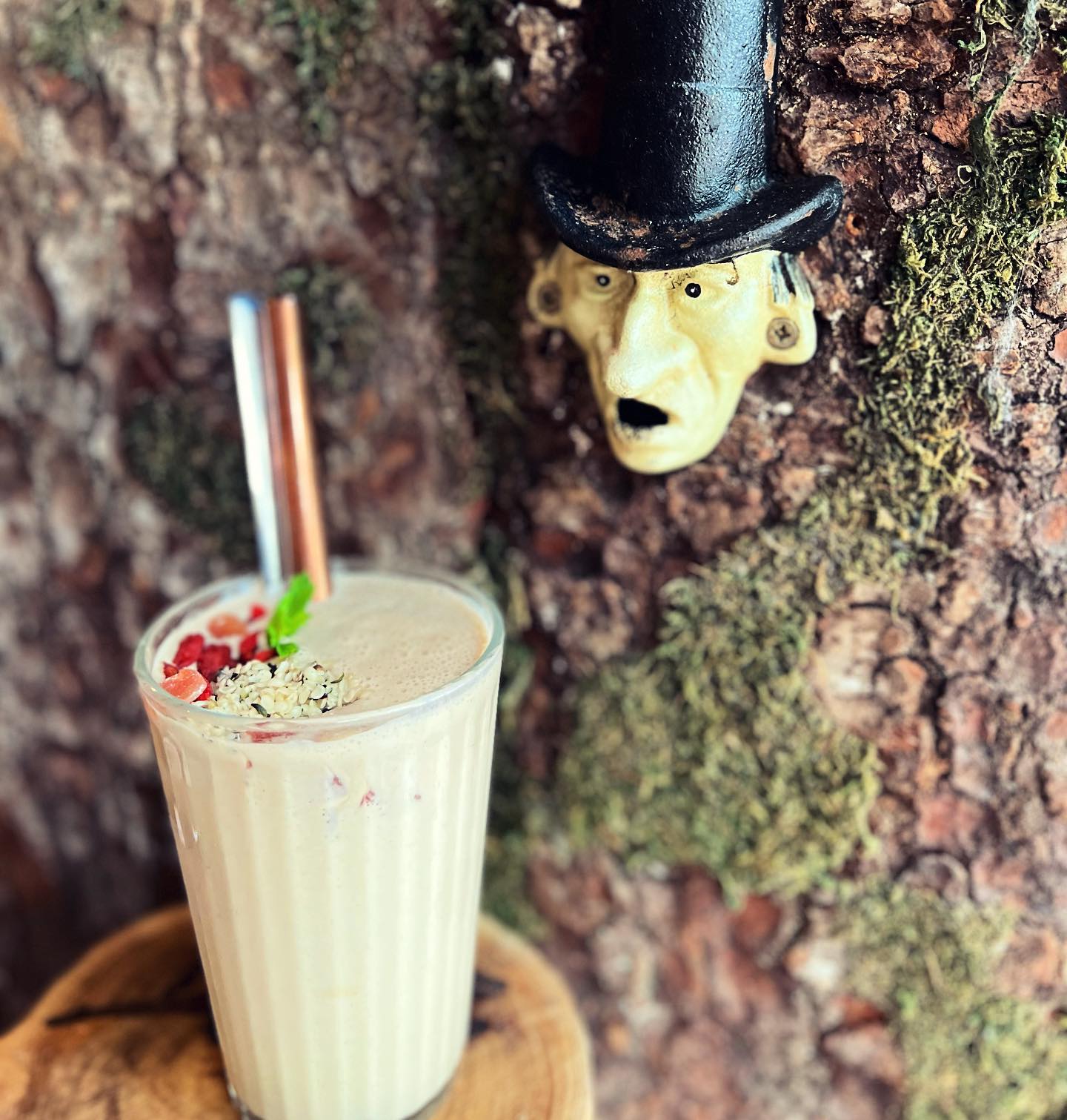
*Another plant-based restaurant new to Split is Barakokula - and they serve brekky, too!
Kat's Kitchen
Priding themselves on using only seasonal and organic ingredients, some even sourced from their garden, Kat's offers free-range eggs, homemade granola, sweet and savory croissants, vegan pancakes, and coconut milk-cooked oatmeal as just some of what you can find. You can explore the menu here.
Brooklyn Bagel Co.
And if you're on the go and looking for something quick, filling, and tasty? Brooklyn Bagel boasts a variety of homemade bagels and shmears and a selection of hearty bagel sandwiches! You can learn more here.
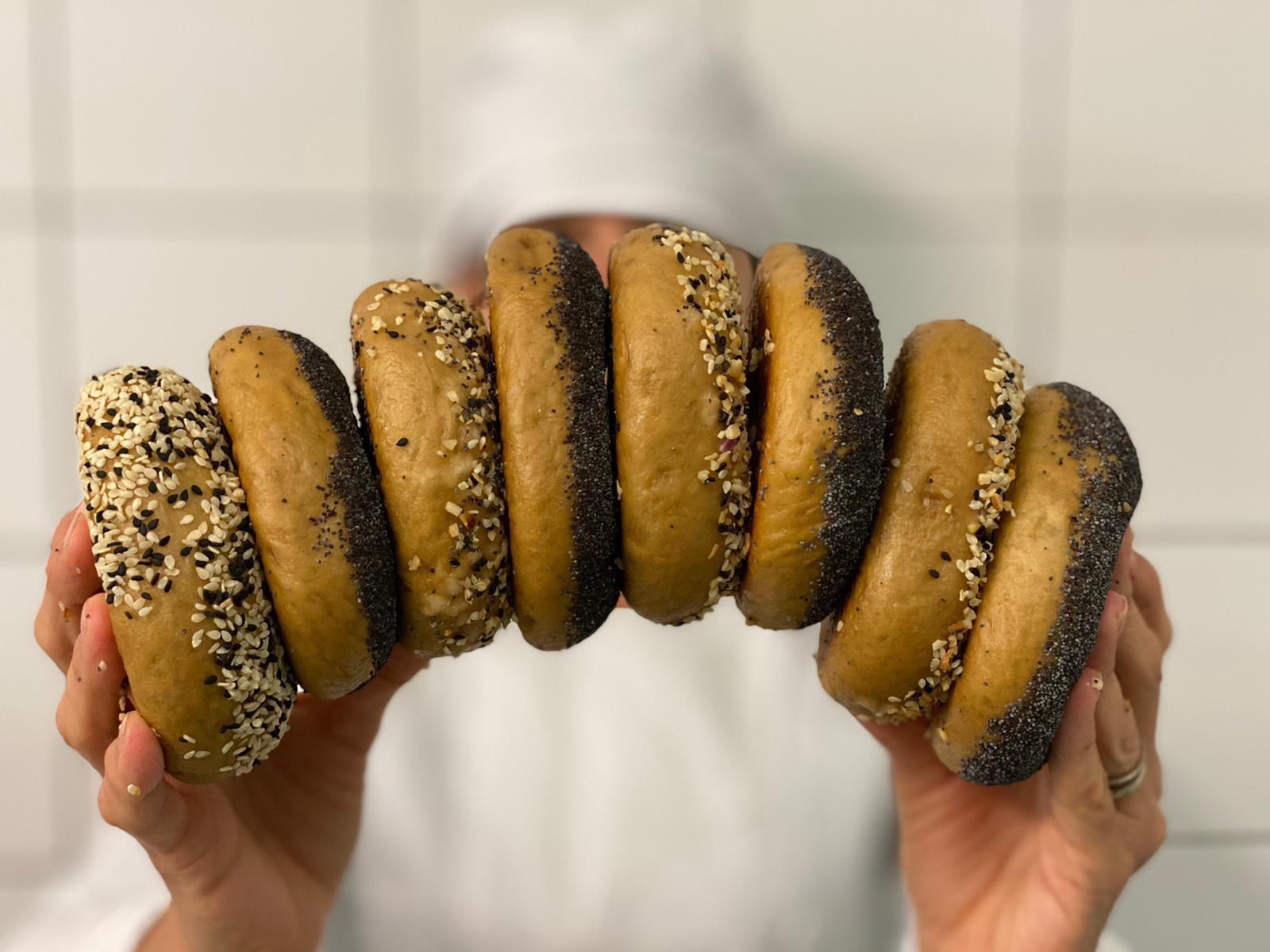
It's nearly impossible to name all restaurants serving breakfast in Split now, and that's not a bad problem to have. No matter where you are in the old town, you'll see a sign for breakfast. If you're in or near Pjaca, don't miss the always popular Bepa, No Stress, or Bokeria, and if you find yourself on the outskirts of the center - Ka Doma is a local gem. And if you want to add a touch of spice to your morning? Sanctuary Cantina will soon be serving up breakfast burritos, hashbrowns, and scrambles every day!
For more, check out our lifestyle section.
Dinamo Learns First Opponent in Champions League Qualifiers
July 13, 2022 - The Croatian champion Dinamo and the Macedonian champion KF Shkupi will meet in the 2nd round of the Champions League qualifiers on July 19.
The 2021/22 Croatian football champion Dinamo found out their opponent in the 2nd qualifying round of the Champions League. It will be the Macedonian club KF Shkupi, based in Čair, Skopje.
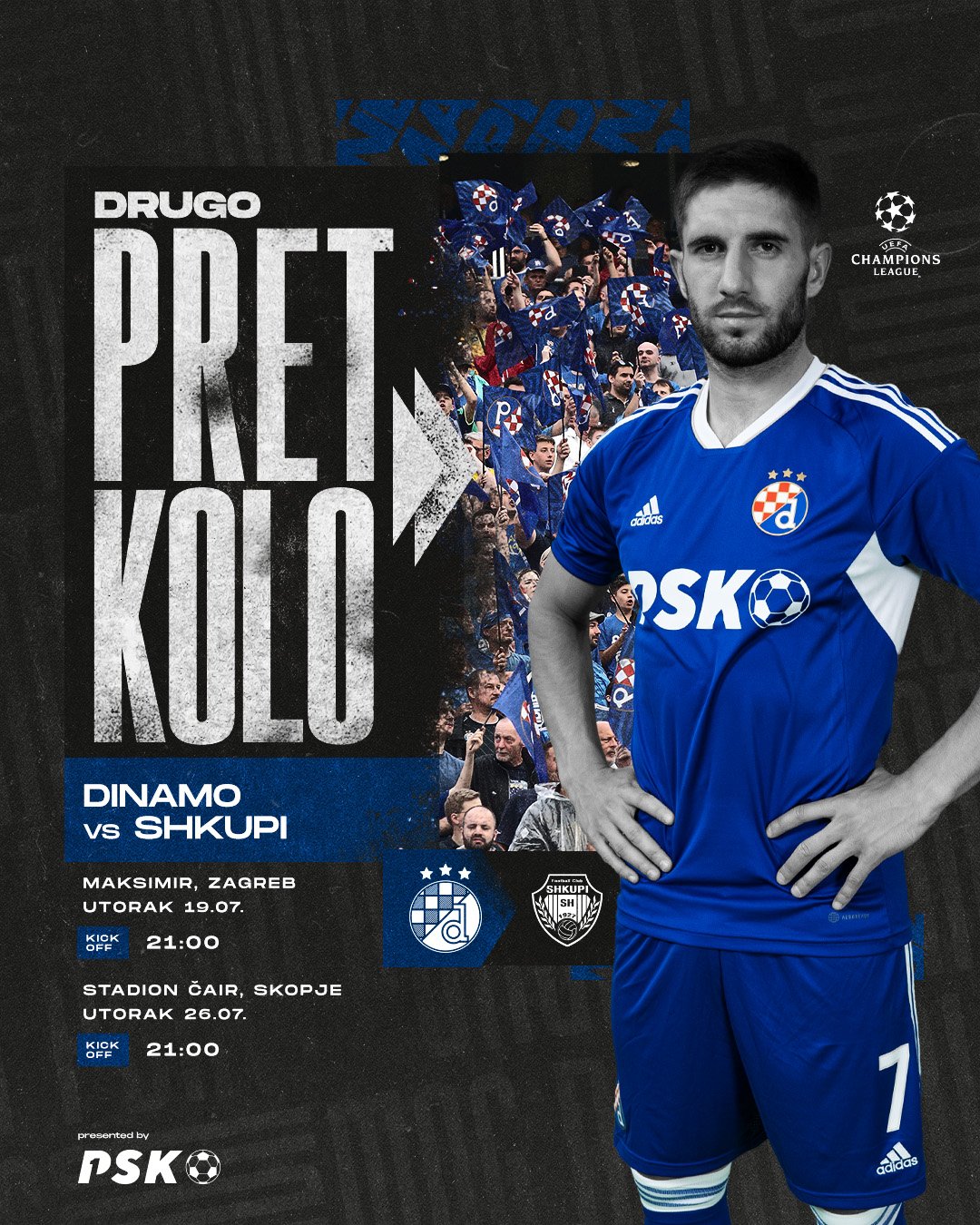
As expected, Dinamo will open their European tour this season against the Macedonian champion, but the Gibraltarian champion Lincoln Red Imps were on the verge of a shocking upset.
The Macedonian team, led by the former player of Dinamo Zagreb and coach of the second team, Goce Sedloski, lost in the second leg of the 1st qualifying round away to Lincoln Red Imps 0-2, but Shkupi celebrated 3-0 in the first match in front of their fans and with an aggregate of 3-2, moved forward.
Lincoln Red Imps took the lead in the 32nd minute with a goal by Juan Pena, and Lee Casciaro made it 2-0 in the 69th minute. The champion of Gibraltar needed one more goal to at least win extra time, but Shkupi managed to defend well to keep them out of the net.
Dinamo will be the host in the first game of the 2nd qualifying round on July 19, and the return match is seven days later. The Croatian champion will be the seeded team in all preliminary rounds of all European competitions, which makes the path to the Champions League group much easier for the Zagreb club.
Suppose Dinamo advances to the 3rd qualifying round of the Champions League. In that case, they will have at least compete in the group stage of the Conference League, while entering the Champions League play-off means at least a spot in the Europa League group stage.
Dinamo is still missing some players, including Boško Šutalo, who has yet to recover from abdominal wall surgery and other issues and will be out for at least the first month. However, Josip Šutalo should be ready soon, while Emreli is also injured at the moment.
Source: HRT
To read more about sports in Croatia, follow TCN’s dedicated page.
20 Ways Croatia Changed Me in 20 Years: 5. Love to Hate to Nirvana
July 13, 2022 - Twenty years a foreigner in Croatia. Part 5 of 20 Ways Croatia Changed Me in 20 Years - the 3 stages of learning as a foreigner: love, hate and nirvana.
As with most things in life, my relationship with Croatia has changed over the last 20 years. I have been wowed by its beauty, felled by its bureaucracy, inspired by its brilliant people, depressed by the default negative mindset, and humbled by the kindness, hospitality and friendship on all levels.
As a foreigner, I don't think one can ever get to know a country or its people totally, and I am still very much on my journey to understanding certain aspects of Croatian society. Living in a different culture is of course fascinating, but it does come with its challenges, and as a foreigner, I have learned (as I wrote in an editorial a few years ago) that there are basically 3 Stages of Learning for Foreigners in Croatia: Love, Hate & Nirvana.
Foreigners interact with a country in different ways. In Croatia's case, the vast majority, 90% or probably more, come as tourists and leave wowed by the beauty I mentioned above. There is a saying I hear a lot here among the default negative mindset that Croatia is perfect for a 2-week holiday and horrible for full-time living. No jobs, corruption, nepotism, no opportunity. None of which one encounters on holiday. And so the vast majority of foreigners only reach the first stage - love. Great news for our tourism, as they will come back and enjoy their holidays in Croatia year after year.
Then there are those foreigners who choose to live in Croatia, the so-called expat community. And the vast majority of those tend to stay in the love Croatia section (they did move here after all) as they exist in their expat bubble, socialising primarily within expat groups, often not learning the language, and only having a cursory understanding of what is happening in Croatia outside their expat bubble. It is a very nice lifestyle, and one which I enjoyed for years. Indeed it was only after I started TCN some 13 years after my arrival that my idyllic expat bubble was burst.
And so - at least in my opinion - the vast majority of foreigners who visit Croatia are blissfully unaware of the realities of the daily grind in Croatia and are very positive as a result. For many years after I reached stage two, I was a little envious of them, for once you get to stage 2, it is almost impossible to go back. But that envy disappeared when I discovered stage 3, nirvana.
The second stage of learning, which I call hate, occurs to a much smaller number of foreigners who live in Croatia and decide to deepen their relationship with the country, often by opening a business. Now firmly out of their expat bubble, they are exposed to the full force of Croatian bureaucracy and many of the illogical laws that are applied. Suddenly that day at the beach is exchanged for being sent from office to office in search of a signature. And the more that they immerse themselves in business, the more they understand how Croatia really works, and why so many young people are leaving - I firmly believe that lack of economic opportunity is not the prime reason, rather corruption and nepotism.
Suddenly, that relaxed Adriatic lifestyle in the sun has changed, eyes are opened to the daily grind and the realities of life here, and there is a greater understanding of what local people are going through.
In my case, it truly took me 8 years in my little Hvar bubble to realise that things worked (or didn't) the way they did for any other reason than laziness on the part of officials. That all changed around the time I started TCN and when I learned about the Cult of Uhljeb.
Like almost all foreigners, even the ones who spoke Croatian, I had never heard of the Croatian word 'uhljeb' until I read it in a title about me and a public official on a national Croatian news portal back in 2015. When I asked on my Facebook page what it meant, there were lots of responses, and it felt like my relationship with some of my Croatian friends changed that day. It was almost as though I had discovered their guilty secret and that I was now descending from my expat bubble and entering their world of Croatian reality. If you want to understand exactly what an uhljeb is, I wrote an explanation some time ago - Welcome to Uhljebistan: A Foreign Appreciation of the Cult of Uhljeb.
Running TCN got me a lot more involved with Croatian politics and the Croatian media, neither of which are particularly happy or positive places to be. What had happened to my perfect Hvar bubble and idyllic life on the most beautiful island in the world? It was lost forever.
Or was it?
And then things changed, or rather my mindset changed. A coffee with a Croatian friend of mine who ran an adventure tourism business. She told me that she checks in on the politics about every six months and finds nothing has changed, whereas I was obsessing about it and covering it on a daily basis and being drowned in its negative messages. In fact, she told me, she stays in Croatia for her friends, family and nature - she is often hiking in the mountains - and contact with the state and the day-to-day grind is kept to a minimum. She accepts that Croatia is far from perfect, but she chooses to live in her own bubble. Life is not easy, money is hard to come by, but she has peace and is only surrounded by positivity. A much better lifestyle than emigration.
The longer I ran TCN, the more people I met. And in the search for positive stories (and there are MANY in Croatia, the majority of them are sadly left untold), I met SO many other people like my adventure tourism friend. They love Croatia and could not live anywhere else, but they protected themselves by surrounding themselves with only positive people, blocking out all the negativity in the media and elsewhere. Most did not want to be featured in the media or discovered or bothered in any way. Rather than spend all day complaining about the injustices in the Mighty State of Uhljebistan, they just accepted that that was part of the price of living in Paradise.
It was a pivotal moment in my Croatian journey and I was reminded of the powerful words of that famous prayer:
Accept the things you cannot change, have the courage to change the things you can, and the wisdom to know the difference.
I was at the Gates of Nirvana. I just needed to coin the sentence, the explanation, the justification (a little like I had done taking 15 years to define the essence of succeeding in Dalmatia in the first part of this series - Do not try and change Dalmatia, but expect Dalmatia to change you).
And then it came to me.
Choosing to live in Croatia for the lifestyle is a little like being an alcoholic in Norway. The alcoholic chooses Norway for the lifestyle, for a beer costs 10 euro and he could drink 5 for the same price in countries like Croatia. But he wants to live in Norway and so chooses to pay the expensive alcohol tax.
And so too in Croatia. One can still advocate for change, but rather than consuming all one's energy in negativity, complaining about the way things are, in my head I now pay my uhljeb tax and - just like the alcoholic in Norway - I am free to enjoy the best lifestyle in Europe and focus on my positive bubble.
Paradise indeed.
Nirvana.
The third stage of learning for a foreigner.
Not only did I have my perfect Hvar bubble back, but also a state of mind and peace with Croatia that makes this truly the best place I have ever and will ever live.
It took me 15 years to figure out the uhljeb tax and expecting Dalmatia to change me. If I can save you 15 years of frustration and pain, I will be very happy indeed.
Come and join, the bubbles of positivity in Croatia are insane.
****
What is it like to live in Croatia? An expat for 20 years, you can follow my series, 20 Ways Croatia Changed Me in 20 Years, starting at the beginning - Business and Dalmatia.
Follow Paul Bradbury on LinkedIn.
Croatia, a Survival Kit for Foreigners will be out by Christmas. If you would like to reserve a copy, email This email address is being protected from spambots. You need JavaScript enabled to view it. Subject 20 Years Book
Promet Split E-Tickets Finally Here: How to Get Yours
July 13, 2022 - The long-awaited Promet Split e-tickets are finally here and in practice on all 155 buses in the fleet.
The long wait in front of the ticket offices is finally over! Promet Split started creating contactless personalized tickets for specific categories of passengers in the new ticketing system, reports Slobodna Dalmacija.
The current passengers in the new ticketing system are: pupils and students who have a summer promotion, so their monthly ticket costs HRK 100, then people over 65 years old, voluntary blood donors, and family members of missing and fallen soldiers.
As reported by Promet, production takes place at the Sukoišan bus stop from Monday to Friday from 6:30 am to 8:00 pm and on Saturdays from 6:30 am to 12:30 pm.
The cost of creating a contactless personalized ticket is HRK 20 for all categories of passengers (the monthly/annual fee is not included), and it will not need to be changed as long as it is valid.
All users of previous annual contactless tickets exercise the right to drive with them until the ticket expires and are not obliged to exchange it immediately.
For example, pupils and students should bring a photo to be scanned and their identity card, i.e., birth certificate or residence card. Pensioners over 65 living in the city of Split can be issued an annual ticket, the price of which depends on the age. It is necessary to bring: a photograph (identity card size) that will only be scanned, an identity card, and a pension slip, i.e., a certificate from the Croatian Pension Insurance Institute that they have no income.
Members of DDK Split from the area of Split (men aged 40 and over, women aged 20 and over) should bring a photo (identity card size) that will be scanned and an ID card. In addition, existing users should bring the personalized contactless card they are currently using, and new users should bring a certificate of the number of donations issued by the Red Cross.
Families of missing and fallen soldiers residing in the city of Split need a photo, the personal contactless personalized card they are currently using, or a certificate from the Department for Croatian Veterans of the Homeland War SDŽ for a new identity card.
You can find the necessary documents for each passenger category here: https://promet-split.hr/obavijesti/izrada-beskontaktnih-personaliziranih-kartica-za-odre%c4%91ene-kategorije-putnika-u-novom-ticketing-sistemu
The e-ticketing system has started on all 155 buses. The system has already been installed in part of the bus. By the autumn, efforts will be made to replace most tickets. Promet expects the biggest impact on pupils and students, who must change their identification cards.
Ticket machines will be available 24 hours a day, tickets can be paid by card on the bus, and tickets can also be purchased via the mobile app, where other important information will be available.
"The display map will only have to be created the first time. After that, you don't even have to see the ticket anymore," said Miroslav Delić, Director of Promet, at the recent presentation of the new system.
For more, check out our lifestyle section.
Website www.euro.hr With Information About Euro Adoption Launched
ZAGREB, 12 July 2022 - The Croatian government and National Bank (HNB) on Tuesday activated the www.euro.hr website with all necessary information about the euro adoption as soon as the European Union's Ecofin completed the process of decision-making on welcoming Croatia to the euro area on 1 January 2023.
The website will be updated on a regular basis.
The HNB says that the general public, businesses, media outlets, and all interested parties can access the website to get information about the determined conversion rate of the kuna for the euro, dual display of prices, motifs of the euro coins minted in Croatia, the image of the euro banknotes and deadlines for the replacement of kuna banknotes and coins with the euro, and consumer rights in the changeover process.
For more news about Croatia, click here.
Milanović Meets Malta's Parliament and Government Officials in Valletta
ZAGREB, 12 July 2022 - Croatia's President Zoran Milanović held meetings with the Speaker of the Maltese House of Representatives, Anġlu Farrugia, Prime Minister Robert Abela and the Opposition's leader Bernard Grech, on Tuesday, the last day of his two-day state visit to Malta.
On Monday, he was received by his host, Malta's President George Vella, for the talks on Croatia's aspirations to join the Schengen Area, Malta's experience in the changeover to the euro and the status of the Croats in Bosnia and Herzegovina.
These topics were also on the agenda of the meetings with the Maltese officials on Tuesday.
Vella invited Croatia's head of state to attend the Arraiolos Group's meeting which will be held in Malta this October. Arraiolos Group is an informal meeting of presidents of parliamentary and semi-presidential European Union member states, held roughly once in a year.
Milanović, accompanied by his wife Sanja Musić Milanović, paid the return visit to Valletta after his host Vella had visited Croatia last October.
For more, check out our politics section.
Croatian Parliament Speaker Receives Montenegrin PM
ZAGREB, 12 July 2022 - Croatian Parliament Speaker Gordan Jandroković on Tuesday received the visiting Montenegrin Prime Minister, Dritan Abazović, the Sabor said in a press release.
The two officials reaffirmed very good relations between their countries, based on mutual respect and constructive cooperation, notably within NATO.
They highlighted the importance of further integration of southeastern European countries in the European Union membership.
The repercussions of Russia's aggression against Ukraine were also on the agenda of the Jandroković-Abazović meeting.
For more, check out our politics section.
Without New Residents and Foreign Workers, Difficult to Maintain a Welfare State
ZAGREB, 12 July 2022 - Without new residents and bringing in workers from abroad, Croatia cannot maintain a welfare state, it was said on Tuesday at a conference - "How to boost economic development with labor policies and continuous investment in education" - at the Lavoslav Ružička Polytechnic in Vukovar.
The director-general of the Croatian Employers' Association (HUP) Damir Zorić assessed that a large part of today's unemployed people in Croatia fall into the category of hard-to-employ and those whom the labour market can hardly count on.
"The second part of the problem is young people leaving the country and the third problem is trying to import labour. Last year, Croatia issued about 100,000 work permits to foreigners, and this year we already reached that number around the middle of the year," Zorić said, adding that the majority of foreigners coming to work in Croatia are from neighbouring countries, but even that "pool" has already been somewhat exhausted.
According to Zorić, Croatia is now turning more and more to India, Romania, and Ukraine, where mostly poorer educated workers are coming from.
"Unfortunately, we are not yet attractive enough for highly educated personnel, because with our salaries we can hardly meet their demands", he said, adding that it is necessary to make labour costs in Croatia cheaper so that workers earn more while reducing obligations to the state.
State Secretary in the Ministry of Labour and Pension System Ivan Vidiš considered that the ministry's participation was important in the creation of a portal for advanced monitoring of the labour market and education. It is a research tool that brings together all data on the labour market in one place, from data on employment and unemployment in the sector to data on secondary and higher education for occupations in that sector, as well as data on the workforce and employers' needs.
For more, check out our politics section.
The Beckhams Celebrate 23rd Wedding Anniversary on Lopud Island
July 12, 2022 - One of the most famous couples in the world chose Croatia to mark their wedding anniversary, as the Beckhams celebrated 23 years of marriage on the island of Lopud.
Since 1997, the couple began to appear on the covers of all newspapers, tabloids, and magazines around the world. One of them - the former star of Manchester United, and the other - the star of one of the most popular pop bands in the world. David Beckham met Victoria Adams after she attended a United match, and the relationship immediately garnered massive media attention. David proposed to Victoria in 1998, fourteen months before their first child, Brooklyn, was born. The couple married on July 4, 1999.
As Jutarnji List reports, the English couple celebrated their 23rd anniversary this year, and among all the places in the world to do it, they chose nothing more and nothing less than the Croatian island of Lopud. Victoria and David Beckham and their family visited the area around Dubrovnik to celebrate their 23rd wedding anniversary and stayed in the luxury complex Lopud 1483 on Lopud, reports the Dubrovnik Daily. They also celebrated their daughter Harper Seven Beckham's 11th birthday there on Sunday.
Lopud 1483 is a former Franciscan monastery that Countess Francesca von Habsburg restored and turned into a combination of a museum, an elegant boutique hotel, and a 21st-century spiritual retreat. Renting the luxurious complex for one day costs 10,000 euros for ten people, and the price of one night is about 1,400 euros. The Beckhams also visited the Bowa restaurant on Šipan Island in the past few days.
"They say he's not funny, they say I never laugh, they say we won't last... Today we celebrate our 23rd wedding anniversary. David, you're my everything. I love you so much," Victoria Beckham wrote on July 4 on her Instagram.
For more, check out our lifestyle section.
Legal Acts on Croatia's Entry Into Euro Area Signed at Ceremony in Brussels
ZAGREB, 12 July 2022 - The ceremony of signing the three final legal acts necessary for Croatia to adopt the euro on 1 January was held in Brussels on Tuesday, whereby the decision-making process for Croatia's entry into the euro area was completed.
One of those legal acts adopted by the European Union's Economic and Financial Council (Ecofin) sets the conversion rate between the euro and the Croatian kuna at 7.53450 kuna for 1 euro. The rate corresponds to the current central rate of the kuna in the exchange rate mechanism (ERM II).
Another of the three acts concerns the decision on the adoption of the euro by Croatia, while the third is an amendment to a regulation welcoming Croatia as the 20th member of the euro area as of next year.
The legal acts also make it possible for the Croatian National Bank (HNB) governor to become an observer in the European Central Bank's governing council in September, and on 1 January 2023, the HNB Governor becomes ta full member of that council.
The relevant documents were today signed by Zbyněk Stanjura, the minister of finance of Czechia, which currently holds the rotating EU presidency..
In attendance at the ceremony were the ECB Executive Board President Christine Lagarde, European Commission Vice President Valdis Dombrovskis, the European Commissioner for Economy, Paolo Gntiloni, and Croatia's Finance Minister Zdravko Marić.
The chairman of the Eurogroup, Irish minister Paschal Donohoe, addressed the ceremony via a video link from Dublin.
All the participants in the ceremony described this as Croatia's historic achievement and that both the European Union and the common currency continued to be attractive.
The EC Executive Vice President Dombovskis said that the entry into the euro area "will complete Croatia’s full integration into the European Union less than a decade after its accession."
"Croatia has shown great commitment and perseverance in meeting the necessary conditions for joining the euro and achieving a high degree of sustainable economic convergence" he stated as carried on his web site.
"This was achieved when Croatia also had to cope with the setbacks of earthquakes and impact of the COVID pandemic.
"Croatia’s hard work and ownership throughout the euro accession process confirms that the euro is an attractive, resilient and successful global currency.
"Our trusted currency union is a great asset for Europe," he underscored
"As Croatian goods and services become more competitive, this should lead to more jobs and higher living standards: good news at a time when Europe is grappling with high inflation," the EC Executive Vice President said.
The Commissioner for Economy, Paolo Gentiloni, said that Croatia had passed an amazing journey from having fought a war some 30 years ago, which was the first war on Europe's soil since the Second World War, to the EU membership which it joined in 2013 to enter the euro area now.
This is an amazing result, we are celebrating the strengthening of our Union today, said Gentiloni.
Donohoe also praised Croatia's achievements and performance of the outgoing minister Marić, who attended the Ecofin in his capacity as Croatia's minister for the last time.
For more, check out our politics section.


